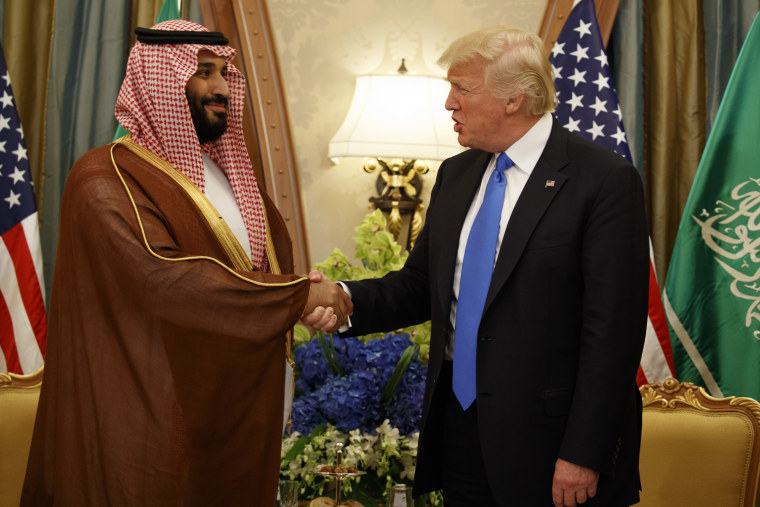Donald Trump was already having a rough week when the U.S. House made matters just a little worse for the president.
The House on Thursday voted to end American involvement in the Yemen war, rebuffing the Trump administration's support for the military campaign led by Saudi Arabia.The bill now heads to President Donald Trump, who is expected to veto it. The White House says the bill raises "serious constitutional concerns," and Congress lacks the votes to override him.
The final roll call on the 247-175 House vote is online here. Note that Democrats were unanimous in their support for the resolution, and they were joined by 16 House Republicans -- which is quite a few given the usual GOP instinct to follow Trump's instructions.
Circling back to our earlier coverage, at issue Yemen's brutal civil war, which has caused a staggering humanitarian catastrophe. Though the crisis is complex -- civil wars, especially in the Middle East, usually are -- Saudi Arabia's intervention in the conflict has exacerbated the nightmarish conditions.
The role of the United States, however, cannot be ignored. We have, after all, extended considerable military support to our partners in Riyadh, which in turn has helped fuel the Saudis' campaign.
Congress, with more than a little Republican support, has said the current policy is untenable.
The Senate passed the same resolution -- with seven GOP senators breaking ranks to help pass it -- a month ago. Trump, of course, will reject it, and proponents almost certainly won't be able to override the president's veto. But that doesn't make the developments insignificant.
For one thing, this represents the first formal, bipartisan rebuke of a key aspect of this administration's foreign policy. The president appears committed to his partnership with Saudi Arabia, but as the humanitarian crisis in Yemen continues, a majority of the House and Senate wants a dramatic change in direction.
For another, it comes against a backdrop in which Congress also passed a resolution rejecting Trump's emergency declaration at the border. The Republican president has never had to use his veto pen, but Trump will now have to use it twice in as many months.
But let's also not overlook the fact that Congress is making a little history with its rejection of Trump's support for the Saudi campaign in Yemen. This resolution relies on the War Powers Resolution to limit U.S. participation in a foreign war. As the Washington Post recently noted, this is the first time ever that Congress has "successfully invoked the War Powers Resolution to end U.S. engagement in a conflict."
